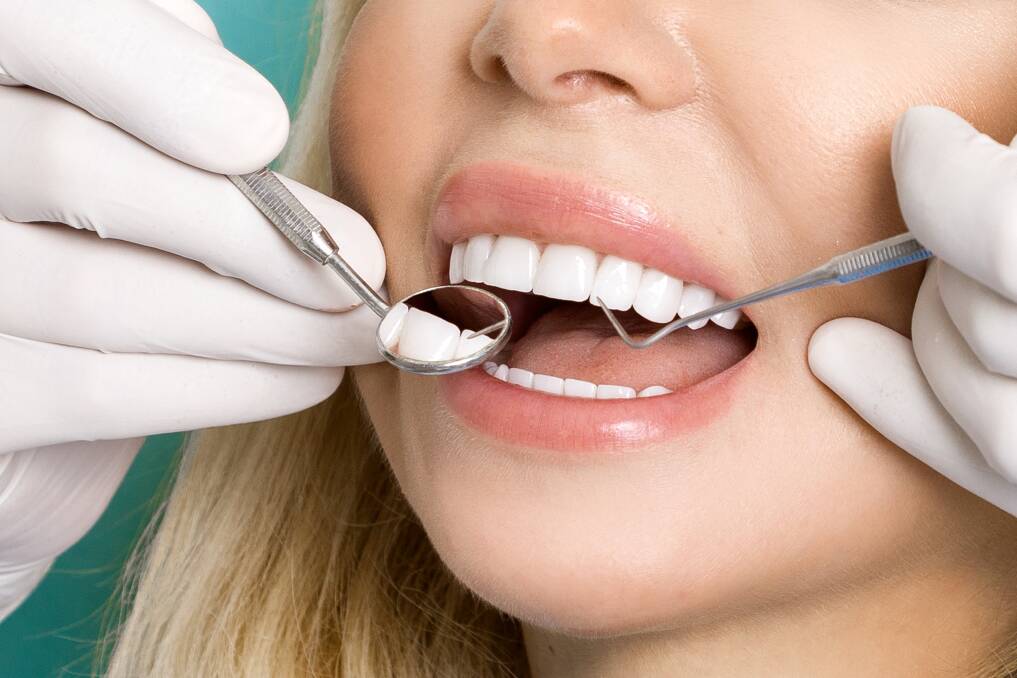All you need to know about porcelain veneers

This article is in partnership with Gorgeous Smiles.
If you are unhappy with the appearance of your teeth, porcelain veneers may be a good option for you. Porcelain veneers are thin sheets of porcelain that are bonded to the front of your teeth.
They can be used to improve the color, shape, and size of your teeth. They can also be used to close gaps between your teeth or to cover up tooth decay. In this article, we will discuss all you need to know about porcelain veneers!
What are porcelain veneers exactly?
Porcelain veneers are a type of dental restoration that is placed on the front surface of teeth. They are made of porcelain, which is a type of ceramic material. Porcelain veneers are used to improve the appearance of teeth that are stained, discolored, chipped, cracked, or misaligned. They can also be used to close gaps between teeth.
Who is a good candidate to get porcelain veneers on their teeth?
There are many people who can be good candidates for porcelain veneers. People who have healthy teeth and gums, who have not had any problems with their teeth in the past, and who want to improve the appearance of their teeth are all good candidates. However, the best candidates for porcelain veneers are those who have realistic expectations about what porcelain veneers can do.
Times when veneers might not work
There are some cases when porcelain veneers may not be the best option. These include:
- Extremely crooked teeth
- Teeth that are severely stained or discolored
- Teeth that are too small or too large
- Teeth that are chipped or broken
- If there is gum disease
Process for getting veneers
When you decide that porcelain veneers are the right choice for you, your dentist will take impressions of your teeth. These impressions will be sent to a dental laboratory where your porcelain veneers will be designed and fabricated. Once they're ready, you'll come in for a second appointment so that your dentist can bond the veneers to your teeth.
The porcelain veneer bonding process is usually quick and painless. Your dentist will first roughen up the surface of your tooth so that the bonding material can adhere properly. Once the tooth is prepared, your dentist will apply a special adhesive to the back of the porcelain veneer and then place it on your tooth. A special light will be used to harden the adhesive, and then your dentist will make any final adjustments to ensure a natural and comfortable fit.
Recovery and post veneer care
After porcelain veneers are placed, it is common to experience some sensitivity to hot and cold foods. This discomfort usually subsides within a week or two. It is important to avoid biting down on hard objects, such as pens or ice, for the first few days after getting porcelain veneers. You should also avoid eating sticky foods, such as caramel, as they can pull on the porcelain veneers and cause them to become loose.
To care for your porcelain veneers, brush twice a day with a soft-bristled toothbrush and floss once a day. Be sure to use non-abrasive toothpaste to avoid scratching the porcelain. You should also visit your dentist for regular cleanings and checkups.
How long do porcelain veneers last?
When porcelain veneers are properly cared for, they can last for up to 10 years. However, it is important to keep in mind that the porcelain may become stained or chipped over time, which will require a visit to the dentist for repair.
What do porcelain veneers cost
The cost of porcelain veneers will vary depending on the location where you live and the experience and expertise of your dentist. However, on average, porcelain veneers cost between $1,200 and $2,500 per tooth.
Impact of root canals
Root canals are a common dental procedure that many people undergo every year. While a root canal may be necessary to save a tooth, there are some potential side effects that patients should be aware of.
One common side effect of a root canal is an increased risk of developing gum disease. Patients who have had a root canal are more likely to develop periodontitis, a form of gum disease that can lead to tooth loss.
Customisable veneers
One of the best things about porcelain veneers is that they can be customised to suit your needs. If you're not happy with the shape or size of your teeth, your dentist can easily adjust the veneers to make them look more like the teeth you've always wanted.
In addition, porcelain veneers can be color-matched to your natural tooth color, or you can choose a brighter shade if you want to achieve a whiter smile.
Cosmetic dentists
When you are looking for a porcelain veneer, it is important to find a cosmetic dentist who has experience in performing the procedure. A cosmetic dentist will be able to help you choose the right porcelain veneers for your needs and will also be able to ensure that the veneers are properly fitted and look natural.
Bottom line
Porcelain veneers are a popular dental treatment that can improve the appearance of your teeth. They are made from porcelain, which is a durable material that can mimic the look of natural teeth. Porcelain veneers are placed over the front surface of your teeth and can be used to treat a variety of dental concerns, such as chips, cracks, gaps, and discoloration.
If you're considering porcelain veneers, it's important to consult with a qualified dentist to see if they are right for you. Porcelain veneers are a significant investment and they are not right for everyone.


